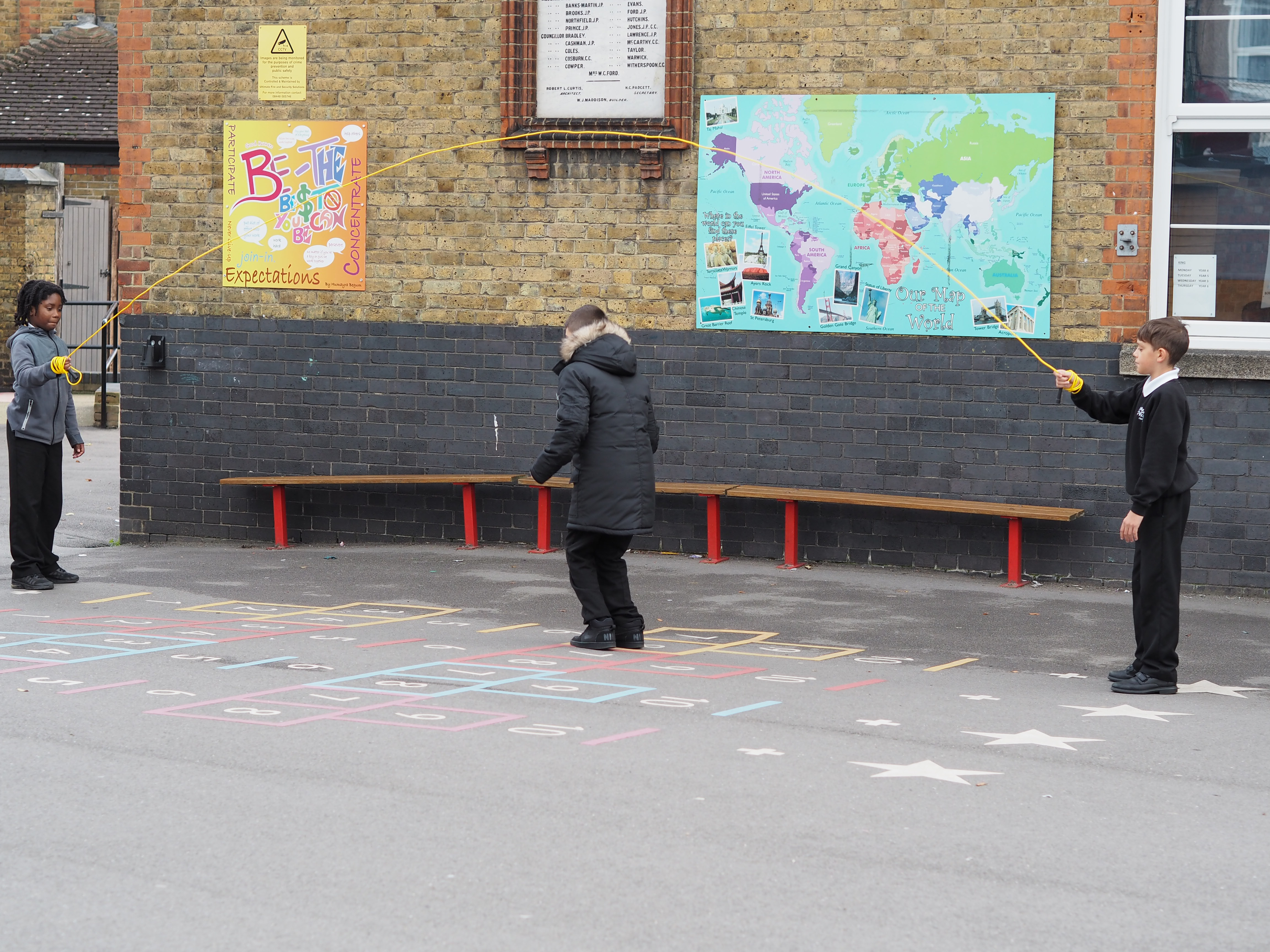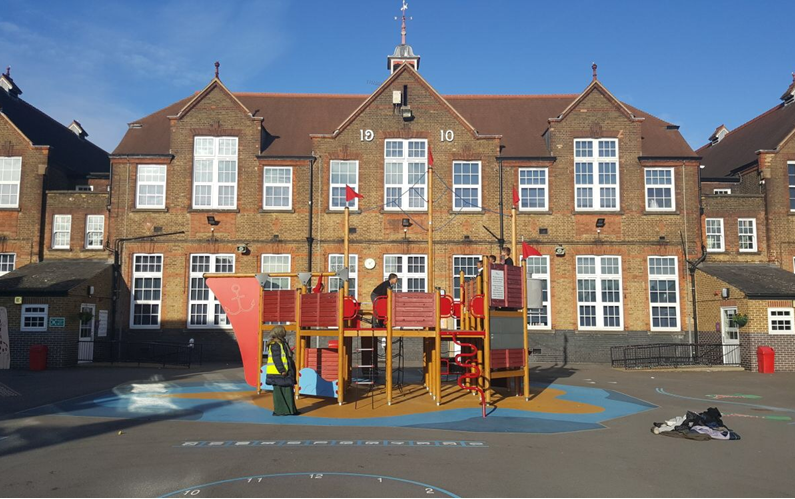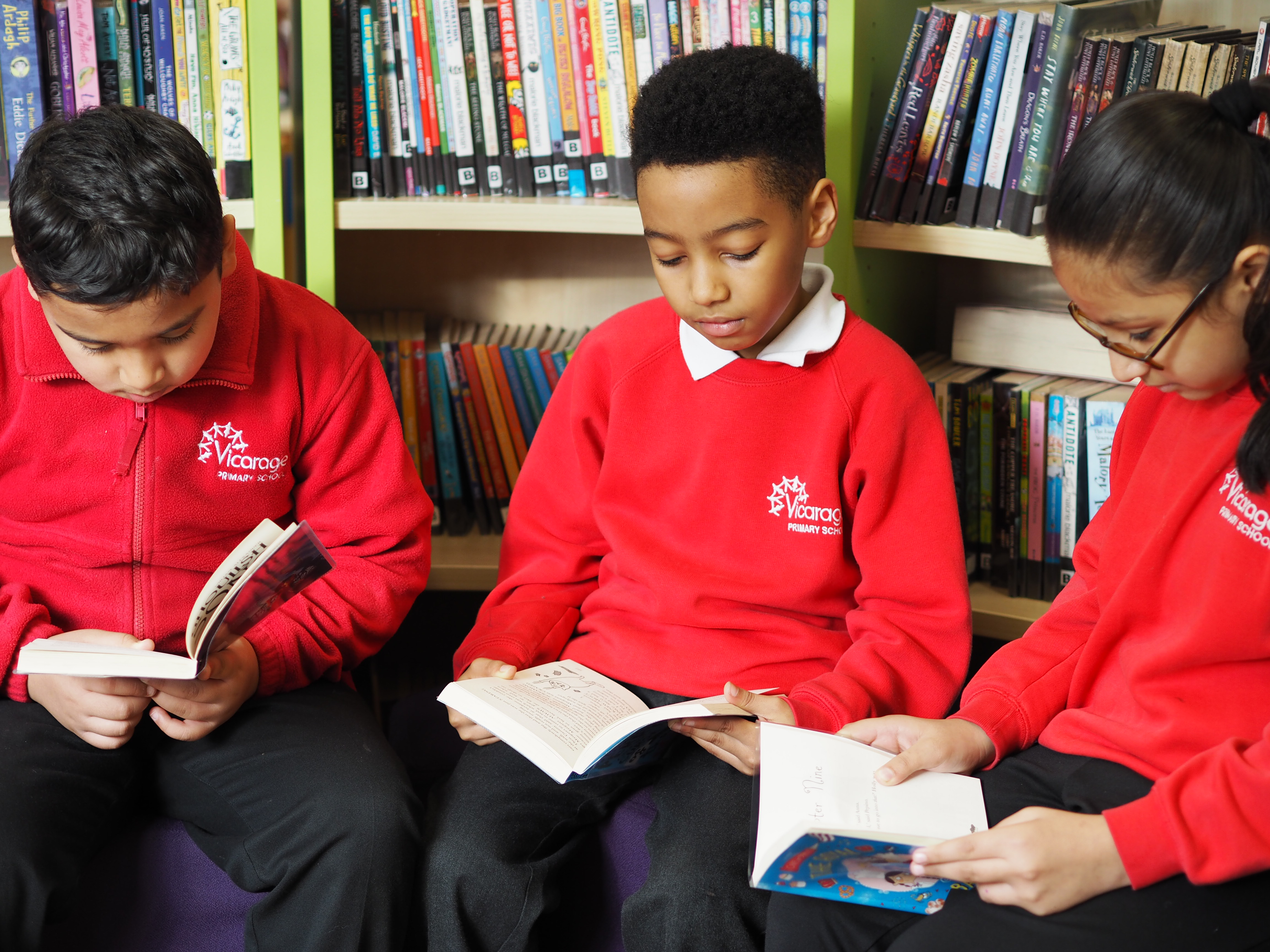Curriculum Intent
Our ambitious curriculum has been designed to take account of the legal requirements of the Early Years Foundation Stage Curriculum and the Primary National Curriculum. It exposes our children to enriching experiences, immersing them in progressive knowledge and skills; equipping them with personal characteristics required to succeed in life.
Our curriculum framework is based on key principles which take into consideration the needs of our pupils’, the community we live in and our school values:
- To ensure language acquisition, reading, writing and arithmetic is the bedrock of our curriculum offer
- To aspire for Excellence, so you can achieve your potential to Be the Best You Can Be
- To develop independence, confidence, and Resilience leading to lifelong learners
- To deliver a curriculum which champions the diversity and inclusivity of our community through Respect for oneself and others
- To give our pupils the rich experiences to become informed and responsible citizens of the world
Curriculum Implementation
Early Reading
- From Nursery to Year 2 pupils are taught to read with passion and purpose using the RWI synthetic phonic (Read Write Inc) scheme, with an aim for pupils to become fluent readers by the end of Key Stage One.
- Daily Guided Reading sessions are taught to develop comprehension skills.
- Reading is embedded through all our curriculum subjects so that pupils can apply their reading skills across the curriculum, with a strong emphasis on learning wide range of vocabulary.
- We encourage and support our pupils to develop a deep passion and pleasure for reading. Every class has a daily story time session. Teachers make regular book recommendations to pupils to encourage reading for pleasure. We are fortunate to have a well-resourced school library for the use of our pupils, staff and parents.
- We organise Reading / Poetry Festivals, World Book Day as well as invite Authors to enhance and raise the profile of reading across the school.
Reading and Writing – separate subjects:
Once children can read accurately and fluently, we teach reading and writing as separate subjects. Teaching writing separately allows teachers and children to focus on the writing processes and writing skills and allows pupils the freedom to use their own ideas without being constrained by the text they are reading. It prevents writing outcomes from being solely a response to reading and instead allows pupils the freedom to develop and use their own ideas without being overly constrained by the text they are reading.
Reading:
From November 2021, we are using the Take One Book reading programme created by Just Imagine. We have adopted this scheme as it is based on real children’s literature and teaches comprehension (and grammar) explicitly in relation to these high quality texts.
The Take One Book units all have the following structure:
- Hook – to engage the children ahead of introducing the text
- Orientation – to activate prior knowledge, build background knowledge and introduce key vocabulary
- First encounters – includes reading the text, exploring ideas, checking understanding and exposing thinking
- Digging deeper – refining a response and expanding thinking
- Review and reflect – including discussing the relevance of the book to the wider world
- Wider learning opportunities (this may run throughout the unit or at the end)
Writing:
From October 2021, we are following the Writing for Pleasure (WfP) pedagogical principles of Young and Ferguson. These include:
- Explicitly teaching the writing processes (how to generate an idea, plan, draft, revise, edit, publish)
- Teachers teach a mini lesson daily and children are invited to apply the principles of this mini lesson to their writing
- Children are given time to write every day
- Writing projects have a purpose and audience
- Children are given time to read, share, think and talk about writing
- Children have the opportunity to pursue personal writing projects
- Teachers carry out ‘pupil conferencing’ to support pupils to further develop their writing
Grammar:
Grammar is taught through the Take One Book reading scheme and through writing ‘mini lessons’. Required ‘mini lessons’ will be mapped out for each year group to ensure curriculum coverage. Where necessary, additional discrete grammar lessons may be taught to ensure full coverage of the grammar curriculum. Year groups are taught new content according to the Grammar Progression document, but regular revisiting of previous years’ content is built into our grammar teaching. This ensures that pupils know and remember more of what they are taught.
Handwriting:
The Letterjoin handwriting scheme should be taught through explicit teaching from Summer Term in Year 1. Teachers are expected to model this cursive style on the board and in pupil books.
Mathematics
Mathematics teaching at our school is based on the principles of Teaching for Mastery. The teaching for mastery principles are embedded within the lessons, representations and questions.
We use the Maths No Problem scheme to deliver our maths curriculum. The Maths No Problem scheme covers the full National Curriculum across years 1 to 6. The scheme splits the curriculum into a range of topics throughout the year and the lessons have a fixed structure which is designed to reflect the teaching for mastery pedagogy:
- In Focus: an open anchor task to start the lesson where children explore a variety of methods to solve one problem
- Let’s Learn: the selection of methods are brought together and teaching focuses on the key strategy or learning point for the lesson
- Guided Practice: questions for children to practice the strategy / key learning for the lesson with support from their peers and teacher
- Independent Practice: questions for children to answer independently in their maths books (or workbooks in KS1)
- Emphasis on embedding the four operations and practising key skills and applying them in different contexts.
- We want pupils to become fluent in the fundamentals of mathematics, so that they can reason mathematically and can apply their skills to problem solving.
- We develop pupils’ mathematical skills through daily mathematic lessons and application in all curriculum areas.
- We use Times Tables Rock Star which is a carefully sequenced programme of daily time’s table practice in KS2, to boosts times table recall.
- To builds pupil’s motivational attitudes towards mathematics we take part in Maths Bee, Number Day and World Maths Day.
Debating and Oracy:
- There is a constant thread through the taught curriculum for opportunities for pupils to develop ’oracy,’ through debating, talk partners, paired and collaborative work, drama, role-play activities, circle time, listening to and discussing stories as well as presentations of learning.
- There are also opportunities for children to develop their ‘oracy’ skills outside of the taught curriculum. These activities include: assemblies, school council and Eco-council meetings and school productions.
- Our Year 5 and 6 pupils take part in Debate Mate competitions held across the borough.
- Music lessons and singing assemblies supports pupils’ in pronunciation, projection of their voices, use of expression and improving confidence. Our school choir takes part in the annual Young Voices event at the O2 alongside hundreds of other primary and secondary pupils across London.
- Pupils in Years 5 and 6 participate in Shakespeare in schools, poetry writing retreat and Iliad Project led by an external consultant.
A Broad and Rich Curriculum
- The Foundation subjects are taught discreetly to ensure there is repetition of subject specific knowledge, vocabulary, concepts and skills to embed understanding.
- Long term subject curriculum maps are planned around key concepts. These concepts are the ‘big ideas’ that shape our pupil’s thinking within each subject. The same concepts are explored and revisited in each unit of work and in every year group. This enables pupils to gradually increase their contextual knowledge and opens a door into a new way of thinking about something and therefore enhances the ability to master the subject.
- Lessons are carefully sequenced to ensure progression with clear end points.
- We want pupils to explore and take risks resulting in a purposeful curriculum. A key part of curriculum delivery is to ensure that pupils understand what they are working towards, i.e. knowing the bigger picture.
- We have specialist teachers for Art, PE, MFL and Music whose expertise and passion for their subject develops pupil’s knowledge and confidence.
- We teach pupils about environmental issues so they develop a deeper understanding and have the skills to make informed and responsible decisions.
- Global learning is built into Geography lessons so pupils understand about international developments and recognise their connections with people across the world. We are part of the ’Connecting Classrooms’ programme and have made links with a school in Kenya.
- P4C is embedded into lessons to encourage pupils to be inquisitive, to ask questions and develop an enquiring mind.
- PSHE and RSE lessons are delivered through the Jigsaw scheme of work. Together with the RE and online safety curriculum we support pupil’s self-awareness, confidence and self-esteem and aim to give them the knowledge, skills and understanding to lead happy, healthy and confident lives and build healthy relationships.
- We teach Spanish to develop pupil’s competence in a modern foreign language.
- We provide a wealth of music opportunities to our pupils including, weekly small group or individual tuition by qualified instructors. As part of this pupils are taught to read music and participate in group performances. We have a school choir who take part in local and national music events. We invite live musicians to our school to perform and deliver workshops. These opportunities not only enhance their enjoyment and attainment in music, but also contributes to their social and mental well-being.
- We involve pupils in aspects of school life, including making key decisions and planning as much as possible so that the school is centred around them and their learning and progress. This is done through class forums.
- The work carried out in the classrooms is enhanced through our offer of a wide range of extra-curricular activities, so that pupils interests and talents can be further developed, leading to deep and secure understanding.
- We offer varied visits and educational experiences designed to support the curriculum and broaden experiences both around the capital, the country and Europe, e.g. pupils in Year 6 went on a week-long visit to Barcelona to study the work of the artist Gaudi.
- We offer enrichment weeks, covering a wide variety of subjects. Pupils experience the opportunity to learn beyond the classroom. The whole school moves away from the usual timetable and learning is focused around a given theme or subject for the week e.g. Black History Month, Mental Health Awareness week.
- We invite visitors into school on a regular basis to enrich the experience of our pupils. These include musicians, sports ambassadors and religious leaders.
- Teamwork and accountability are an essential part of our curriculum. We enable pupils to take on key roles, becoming involved in the community, through charity fundraising events.
- We respect and celebrate the religions and cultural diversity within our school. We hold special assemblies and themed weeks as well as ensure pupils visit a range of places of worship during their time at the school.
- We develop and promote British Values throughout our school and within our curriculum.
- We are an inclusive school and take pride in ensuring pupils with SEND have access to quality personalised learning opportunities including horse-riding, swimming, and a range of intervention groups. The school has its own soft play and sensory room so that provision is accessible and appropriate.
Curriculum Impact
- We use a range of strategies to help assess the impact of the planned curriculum including learning conversations, pupil conferencing, feedback marking, end of unit quizzes, questioning, lesson visits, book looks and termly formal assessments.
- We believe in supporting pupils’ growing depth of knowledge and mastery of subject specific skills by providing a progression map across all subject areas. Both the key knowledge, skills and vocabulary are clearly mapped out to ensure a progressive and suitably challenging curriculum across all subjects.
- Pupil conferencing – Are children happy, engaged, motivated to do well, challenged? Do they know more? Can they remember more?
- Learning visits with governors and external visitors – Can they see evidence of our values in action?
- Planning –is it allowing children to gain knowledge and master skills? Does it meet the needs of all learners? Does it allow for a range of experiences?
- Book Looks – Are all children making at least sufficient progress from their various starting points?
- Parent surveys – Are parents happy with the curriculum we provide, if not – how can we improve?
- Learning environment – Is it rich in language to support children’s learning? Does it support independence? Does it promote pride in their work and high standards of presentation?]
- Behaviour logs – Are children embodying the school values throughout the day?






